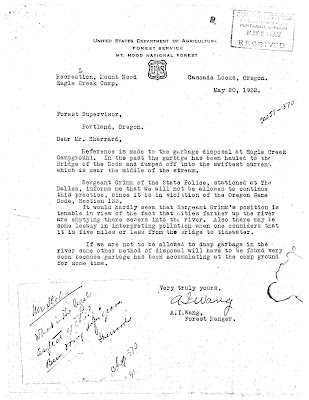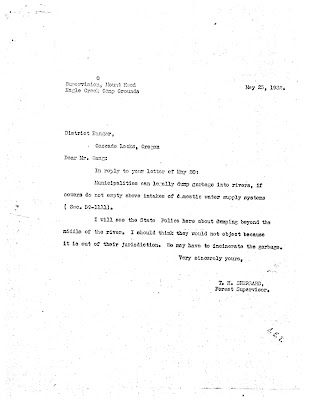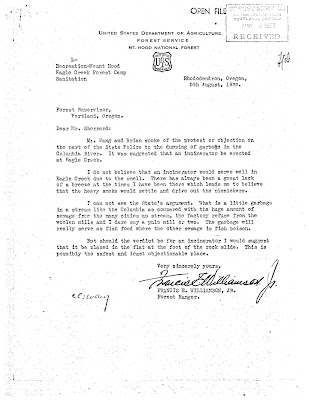The other day I heard an interview with Woody Allen on Terry Gross’ Fresh Air (wink to you, Laurie). She asked him if he cared what people thought about his choice to leave Mia Farrow and marry their adult adopted daughter Soon-Yi.
“I don’t want to say I don’t care,” he answered, “because that sounds bad. But I also have to say that it’s impossible to live an authentic life if you make decisions based on what other people think.”
This is, of course, not a new idea. He’s reiterating a concept that many philosophers have explored, such as Osho, David’s current favorite. We all grow up with ideas we learn first from our parents, then from our schools, churches, friends and lovers. Becoming an independent adult is partially the process of learning to separate who you are from what everyone wants you to be. It’s not easy to decide you disagree with what everyone around you thinks. It’s comforting to be one with the group, where everyone approves of what you say. It’s tempting to say only those things that will garner approval. And yet, you trade personal authenticity for that approval. If you do only those things that others will agree with and approve of, you end up living the life other people think you should have. In essence you lose your life to other people’s ideas.
It’s like Aesop’s Fable “The Man, the Boy and the Donkey,” which bears repeating here. (There’s a great site http://aesopfables.com/ that has over 655 fables online with a searchable index. The site also notes that “Mr. Carlson at http://aesop.creighton.edu/ has over 3,000 books of Fables. They are all fully cataloged with much information about each and the catalog is online however he does not have any fables online.”)
A Man and his son were once going with their Donkey to market. As they were walking along by its side a countryman passed them and said: “You fools, what is a Donkey for but to ride upon?”
So the Man put the Boy on the Donkey and they went on their way. But soon they passed a group of men, one of whom said: “See that lazy youngster, he lets his father walk while he rides.”
So the Man ordered his Boy to get off, and got on himself. But they hadn’t gone far when they passed two women, one of whom said to the other: “Shame on that lazy lout to let his poor little son trudge along.”
Well, the Man didn’t know what to do, but at last he took his Boy up before him on the Donkey. By this time they had come to the town, and the passers-by began to jeer and point at them. The Man stopped and asked what they were scoffing at. The men said:”Aren’t you ashamed of yourself for overloading that poor donkey with you and your hulking son?”
The Man and Boy got off and tried to think what to do. They thought and they thought, till at last they cut down a pole, tied the donkey’s feet to it, and raised the pole and the donkey to their shoulders. They went along amid the laughter of all who met them till they came to Market Bridge, when the Donkey, getting one of his feet loose, kicked out and caused the Boy to drop his end of the pole. In the struggle the Donkey fell over the bridge, and his fore-feet being tied together he was drowned.
“That will teach you,” said an old man who had followed them: “Please all, and you will please none.”
I think we’ve all been there. We all want to please everyone. We want to be approved of and loved. But the price for that is your authentic self.
Yesterday someone posted a comment on my blog post: “The I’s definitely have it in this blog followed closely by the Me’s.” Because someone didn’t like what I said, they went for an anonymous personal attack. They’re implying that my ideas are a result of egotism, elitism or self-absorption. This is a classic way to attack a person who expresses ideas one doesn’t like. Instead of arguing the ideas, the person who disagrees expresses personal disapproval. I’m meant to feel bad about myself, that I’m thinking about myself instead of agreeing with the group.
Anyone who clicks on “View My Stats” can see the anonymous poster’s IP address is in David’s hometown. There’s quite a few hits from that part of the world on this particular post, which is not surprising since I talked about the differences in the high school educations David and I received and whether that means anything.
I’m not sure that it does mean anything. There’s a big part of me that believes it shouldn’t matter in our lives, what kind of education we get or what kind of background we come out of. I believe anyone can make themselves into whoever they want to be. Of course, that comes back to authenticity.
But if a big city high school education is better than one at a rural school, doesn’t that bear examining?
Kathyrn Mostow’s song and video are based on the well-loved Margaret Mead quote: “Never doubt that a small group of thoughtful, committed citizens can change the world. Indeed, it is the only thing that ever has.” Thoughtful, because you have to think past what everyone has already agreed to. Committed, because it takes courage to speak those thoughts and suggest that maybe the staus quo isn’t quite as perfect as everyone wants to believe it is.
I have great admiration for Penelope Trunk’s courage. The other day she posted on her blog, which has over 36,000 subscribers, that she had two abortions. Regardless of where you stand on the issue, anyone with any sense of the world has to acknowledge the courage it took for her to lay the issue open with her personal experience. Many people will not approve of her. But there are things more important than seeking approval.
Talking honestly and openly about the world and what needs changing, might be a good place to start.


 It’s shocking, isn’t it, that they’re arguing about dumping garbage in the Columbia? After all, they’re very careful to dump it from the bridge in the best spot, with the swiftest current. You laugh to read it.
It’s shocking, isn’t it, that they’re arguing about dumping garbage in the Columbia? After all, they’re very careful to dump it from the bridge in the best spot, with the swiftest current. You laugh to read it.